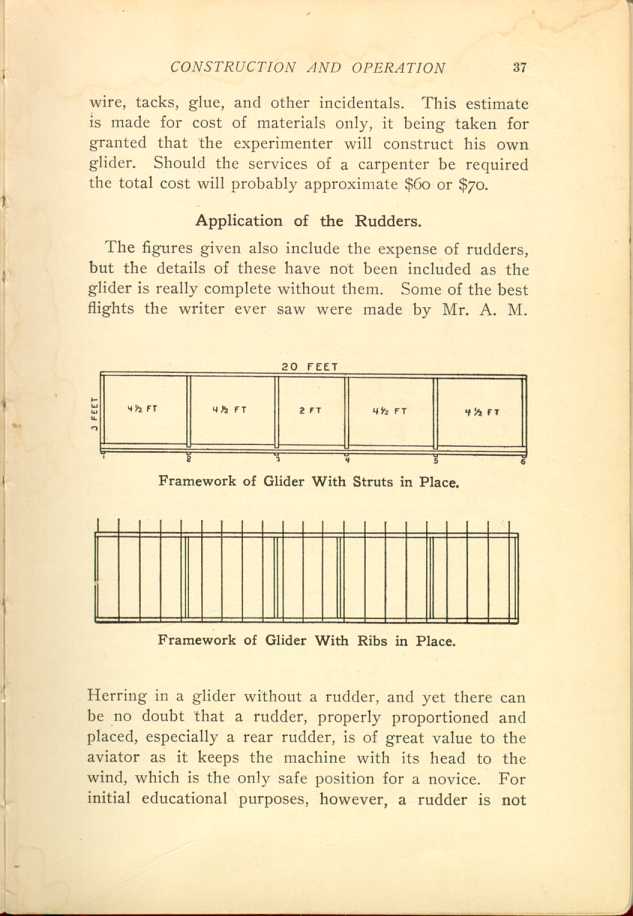Application of the Rudders.
The figures given also include the expense of rudders, but the
details of these have not been included as the glider is really complete
without them. Some of the best flights the writer ever saw were made by
Mr. A. M.

Framework of Glider With Struts in Place.
[Description: Black and white illustration: Top: diagram of glider with
struts. Bottom: diagram of glider with ribs.]
Framework of Glider With Ribs in Place.